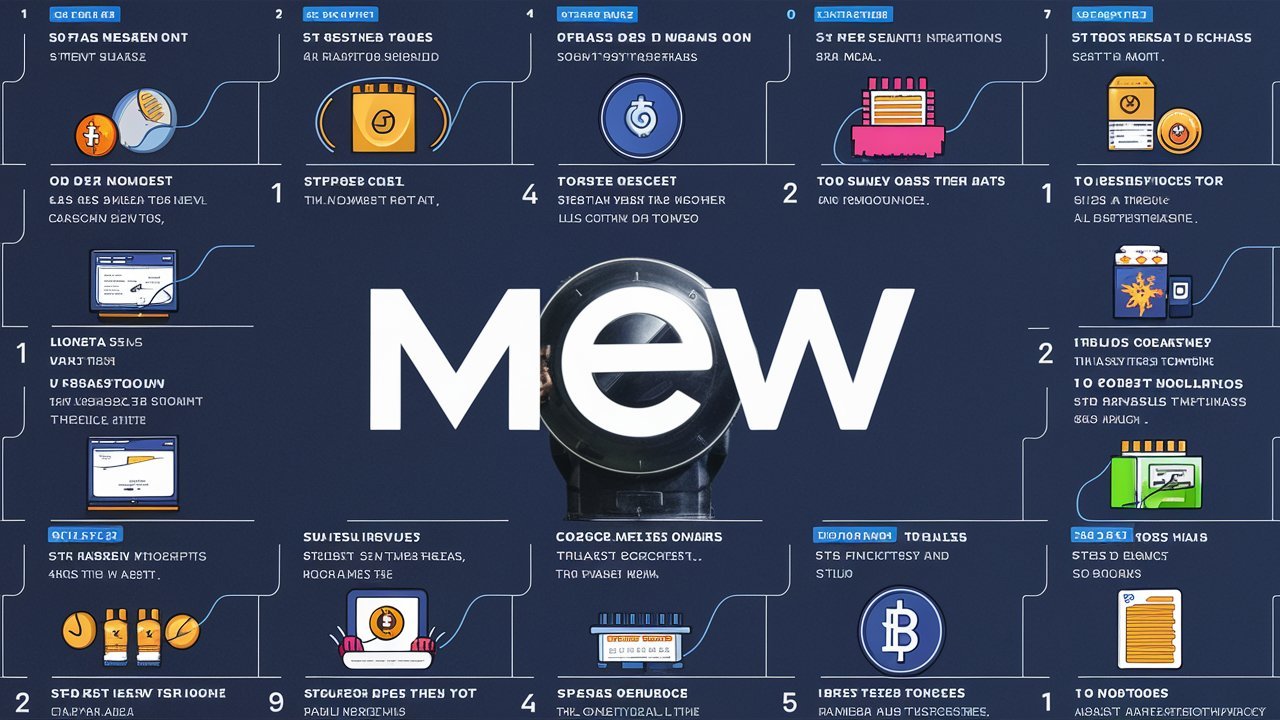Cryptocurrency has revolutionized the financial landscape, offering new investment opportunities and innovative financial solutions. The rise of new cryptocurrencies presents potential for high returns but requires careful consideration and understanding of the market. This guide will walk you through the process of buying new crypto, ensuring you are well-informed and prepared for the journey.
What is Cryptocurrency?
Definition and Basic Concepts
Cryptocurrency is a digital or virtual currency that uses cryptography for security. Unlike traditional currencies, it operates on decentralized networks based on blockchain technology, ensuring transparency and security.
History and Evolution
The concept of cryptocurrency was first introduced in 2009 with the launch of Bitcoin by an anonymous entity known as Satoshi Nakamoto. Since then, thousands of new cryptocurrencies have emerged, each with unique features and applications.
Why Invest in New Cryptocurrencies?
Potential for High Returns
New cryptocurrencies often offer significant profit potential as they are less established and can experience rapid value increases.
Diversification of Portfolio
Investing in a variety of cryptocurrencies can help diversify your investment portfolio, spreading risk across different assets.
Access to Innovative Technologies
New cryptocurrencies often introduce innovative technologies and solutions, providing early adopters with opportunities to participate in groundbreaking projects.
Understanding the Crypto Market
Market Dynamics
The cryptocurrency market is highly volatile and influenced by various factors, including technological advancements, regulatory changes, and market sentiment.
Key Players
Major players in the crypto market include exchanges, miners, developers, and institutional investors. Understanding their roles can help you make informed investment decisions.
Regulatory Environment
Regulations vary by country and can significantly impact the value and legality of cryptocurrencies. Keeping abreast of regulatory changes is crucial for any crypto investor.
Researching New Cryptocurrencies
Identifying Promising Projects
Look for projects with a strong team, clear use case, and active development. Researching whitepapers, project roadmaps, and community engagement can provide valuable insights.
Analyzing Market Trends
Monitor market trends and sentiment to identify opportunities. Tools like CoinMarketCap and CoinGecko can provide real-time data on cryptocurrency prices and market capitalization.
Assessing Risks
Consider the potential risks associated with new cryptocurrencies, such as market volatility, regulatory changes, and technological challenges.
Setting Up a Crypto Wallet
Types of Wallets
There are various types of crypto wallets, including hardware wallets, software wallets, and paper wallets. Each type offers different levels of security and convenience.
Choosing the Right Wallet
Select a wallet that suits your needs in terms of security, ease of use, and supported cryptocurrencies. Hardware wallets like Ledger and Trezor offer robust security for long-term storage.
Securing Your Wallet
Ensure your wallet is secure by using strong passwords, enabling two-factor authentication, and regularly updating your software.
Buying New Cryptocurrencies
Choosing a Cryptocurrency Exchange
Select a reputable exchange that supports the new cryptocurrencies you are interested in. Popular exchanges include Binance, Coinbase, and Kraken.
Creating an Account
Register an account on your chosen exchange, providing the necessary identification and completing any required verification processes.
Funding Your Account
Deposit funds into your exchange account using a bank transfer, credit card, or another accepted payment method.
Placing an Order
Place a buy order for the desired cryptocurrency. You can choose between market orders, limit orders, and stop orders depending on your trading strategy.
Storing Your Crypto Safely
Transferring to a Wallet
Once you have purchased your cryptocurrency, transfer it from the exchange to your personal wallet for added security.
Backup and Recovery
Regularly back up your wallet and store recovery phrases in a secure location to prevent loss of access to your funds.
Staying Vigilant
Be aware of potential scams and phishing attempts. Always verify the authenticity of websites and communications before entering your wallet information.
Trading Strategies
Long-Term Holding (HODLing)
Holding onto your cryptocurrency for an extended period can yield significant returns, especially if the project grows and gains adoption.
Day Trading
Day trading involves buying and selling cryptocurrencies within the same day to take advantage of short-term price fluctuations. It requires careful analysis and quick decision-making.
Swing Trading
Swing trading aims to capture gains from price swings over several days or weeks. This strategy involves technical analysis to identify trends and price patterns.

Legal and Tax Considerations
Understanding Tax Implications
Cryptocurrency transactions can have tax implications depending on your jurisdiction. Keep detailed records of your transactions for accurate tax reporting.
Complying with Regulations
Ensure you comply with local regulations regarding cryptocurrency trading and reporting. Consult with a tax professional if necessary.
Avoiding Legal Issues
Be aware of the legal status of cryptocurrencies in your country and avoid participating in illegal activities or unregulated platforms.
FAQs
What is the best way to store my cryptocurrency?
The best way to store your cryptocurrency is in a hardware wallet, which provides high security against hacking and unauthorized access.
How can I minimize the risks of investing in new cryptocurrencies?
To minimize risks, diversify your investments, conduct thorough research, stay informed about market trends and regulations, and only invest what you can afford to lose.
What are the signs of a promising new cryptocurrency?
Promising new cryptocurrencies typically have a strong development team, a clear use case, active community engagement, and transparent communication.
Are there any fees associated with buying cryptocurrencies?
Yes, there are fees associated with buying cryptocurrencies, including transaction fees, exchange fees, and withdrawal fees. These vary by platform and transaction type.
How can I keep up with the latest developments in the crypto market?
Stay informed by following reputable news sources, joining crypto communities on social media, subscribing to newsletters, and using tools like CoinMarketCap for real-time data.
Is it safe to buy new cryptocurrencies?
Buying new cryptocurrencies carries risks, including market volatility and potential scams. Conduct thorough research and use reputable platforms to mitigate these risks.
Conclusion
Buying new cryptocurrencies can be a rewarding venture if approached with caution and informed decision-making. By understanding the market, researching projects, securing your investments, and staying compliant with regulations, you can navigate the crypto landscape effectively. Remember to stay updated on market trends and continuously educate yourself to make the most of your crypto investments.

